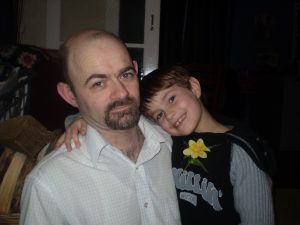 This week I gave my young son a tearful hug and watched him cross through airport security to join the first leg of a long journey to Europe. I found myself, reviewing the previous eighteen years and wondering whether or not I had done enough for him. His mother and I have a solid friendship now, but we separated when he was just two. So co-parenting presented numerous challenges for us for many years. Not the least of those was that (despite his intelligence) my son sometimes struggled within the school system. At times it broke my heart and I often felt like I badly let him down. But what I have found out since we began researching our new project Creative Forest is that the education system is simply not serving our kids well enough in the 21st Century.
This week I gave my young son a tearful hug and watched him cross through airport security to join the first leg of a long journey to Europe. I found myself, reviewing the previous eighteen years and wondering whether or not I had done enough for him. His mother and I have a solid friendship now, but we separated when he was just two. So co-parenting presented numerous challenges for us for many years. Not the least of those was that (despite his intelligence) my son sometimes struggled within the school system. At times it broke my heart and I often felt like I badly let him down. But what I have found out since we began researching our new project Creative Forest is that the education system is simply not serving our kids well enough in the 21st Century.
Let me state that this article is not about shifting blame or spotlighting shortcomings in education, it’s about acknowledging that kids have different learning styles, society is changing rapidly and that we are not addressing this fast enough. Our current “modern” form of Western education has origins that date back two centuries. That system arose in the wake of the Industrial Revolution as economies transitioned away from being agrarian and when there was a need for a more literate workforce. Teachers stood at the front of the class imparting knowledge to students lined up in rows. Little has changed.
I don’t mind admitting that this old system served me well personally, because I actually enjoy absorbing facts and was good at sitting exams (one of my few talents). I ended up with three degrees including a post-graduate qualification and was the first person on my father’s side of the family to complete a university education. But now it’s becoming clear that many bright children are not suited to this model, yet there are so few alternatives. It’s time we became an education nation where teaching is properly resourced and we provide alternate pathways that motivate learners. Our future viability in the world depends on it!
Today we are faced with vastly different economic structures, increasing disparities in wealth and exponentially accelerating technological change. How do we equip our children with the skills to navigate these enormous problems? With Creative Forest we take some of the emergent thinking on project based learning and personalised learning and bring them together with a design based ecosystem approach that supports both students and teachers. The open source Creative Forest system delivers success in STEAM subjects, on the basis of personal inquiry, guided by teachers and external mentors. So we use a hybrid setup with the online platform supporting the classroom environment.
Critics of these new methodologies worriedly cite the dangers of eliminating knowledge from the curriculum, but this is a red herring. Learning is not a zero sum game and introducing new approaches does not need to be at the expense of curricula. Indeed bringing forward some new thinking has the potential to enhance how knowledge is passed on. It also opens doorways for kids that were previously excluded and conveys soft skills such as collaboration that they will need in the real world. Thankfully some teachers are already beginning to embrace these ideas and Creative Forest is making progress working with these early adopters.
Meanwhile, thirty hours later we receive a cheerful FaceTime call from my son. He has negotiated several major international airports, landed in Tokyo, Japan, found his hotel then flown on to Osaka the next day, where he interprets online maps to find his way safely across a huge, unfamiliar non-English speaking city, via trains and buses, to a tiny apartment where his buddy is staying. We also hear that he has a job offer awaiting his return to New Zealand. I guess I didn’t fail him entirely in his education.
Paul Spence is a commentator and serial entrepreneur, a co-founder of New Zealand based technology ventures iwantmyname and Creative Forest and a mentor with Startup Weekends and Lightning Lab. You can follow Paul on Twitter @GeniusNet or sign up for a free weekly digest of startup, tech and innovation related events curated by him through New Zealand Startup Digest.
